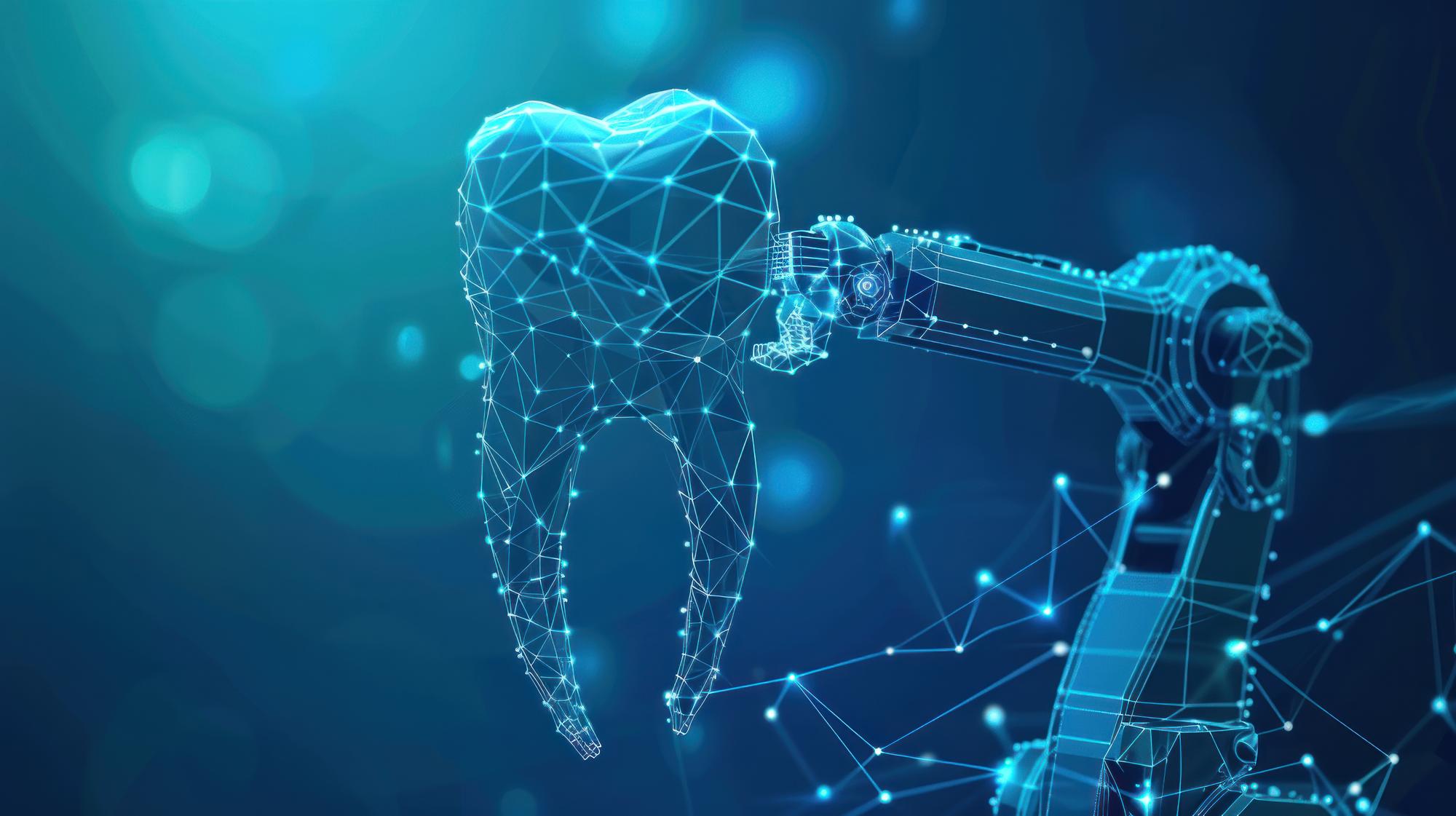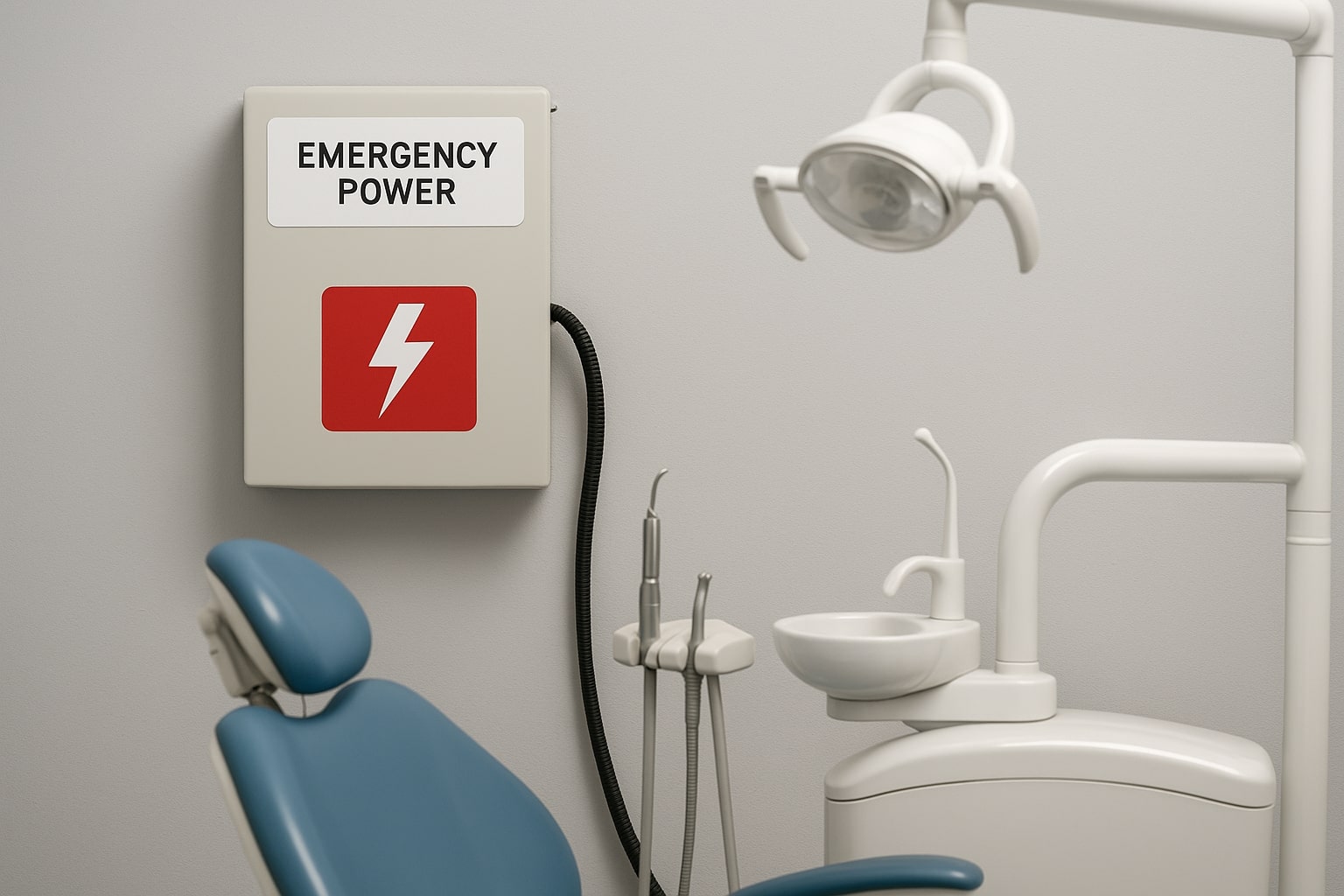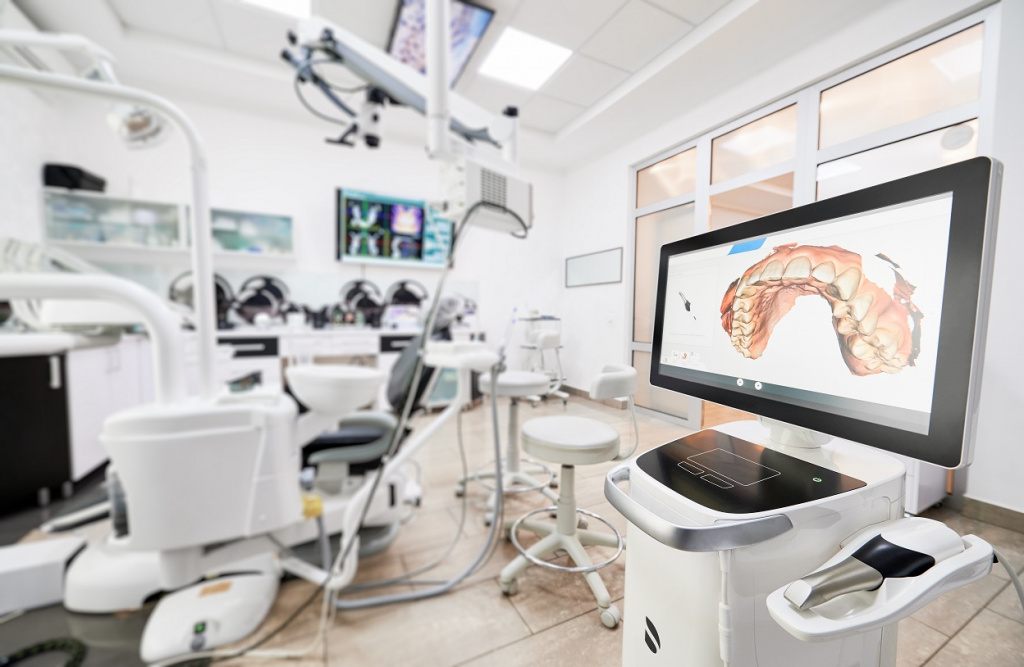Years ago, when artificial intelligence (AI) was discussed in medicine and other sciences, images from science fiction movies would come to mind. However, the important point is that AI is expanding and advancing, and its impact on dentistry cannot be denied. Although its progress is currently limited, in the near future, it can be said that AI will become one of the main pillars of science. If you’re curious to know how AI is impacting dentistry and what effect it will have on dental equipment, don’t miss reading the rest of this article.
Introduction to Artificial Intelligence and Its Impact on Dentistry
If we were to provide a simple and understandable definition of artificial intelligence, we would say that AI refers to all activities carried out with the help of machines to further human goals. The history and origin of this technology dates back to the 1940s, when work on the development of neural networks began, and it continues to progress steadily. You can visit the Dentanat website for purchasing implant equipment and supplies.
Interestingly, artificial intelligence in dentistry is also a novel and practical phenomenon. It assists with software for analyzing X-ray images and provides specific information to surgeons and dentists. What’s even more fascinating is that, in many cases, AI’s diagnosis is more accurate than the physician’s experiential diagnosis. In the following, we will explore the applications of AI in dental and orthodontic services, so stay with us.

Artificial Intelligence and Restorative Dentistry
The use of dental prosthetics in the field of dentistry is quite common and widespread. Interestingly, artificial intelligence has brought significant growth and transformation to restorative treatments through prosthetics. With this technology, it is possible to repair inlays, veneers, crowns, and bridges. You may have occasionally encountered minor errors in dental restorations and the asymmetry of dental prosthetics. With the rise of artificial intelligence, these error rates are significantly reduced to the lowest possible levels.
Artificial intelligence, by analyzing images and data, makes the diagnosis and treatment of oral and dental diseases faster and more accurate.
Benefits of Artificial Intelligence in Dentistry
Now that you’re familiar with some of the applications of artificial intelligence in dentistry, it’s important to explore the advantages this technology brings to the field. Below are some of the most common benefits of AI in dentistry:
- The process of diagnosing oral and dental diseases becomes faster and more accurate.
- AI helps patients take action to repair and treat their decayed and damaged teeth before it’s too late, preventing the disease and decay from progressing.
- AI enhances the use of multidimensional CT scans with X-rays, directly impacting the way dental diseases are diagnosed and treated.
- With the tools AI provides to dentists, accurate and rational reports can be generated, allowing patients to proceed with treatment with full awareness.






